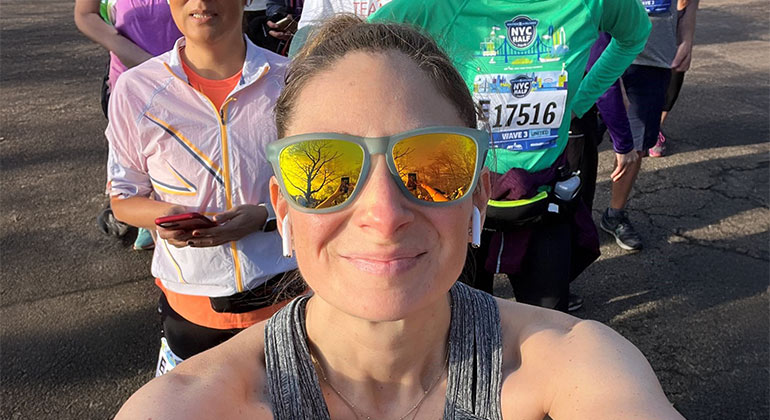
A Teenager From Ukraine Receives Life-Saving Procedure at Mount Sinai Kravis Children’s Hospital
Sofiia Baturina was just 16 when war with Russia broke out in Ukraine in February 2022. She was born with tetralogy of Fallot, a rare heart condition that can lead to dangerously low oxygen levels in the blood and requires life-long care. Starting at 10 months old, she had three heart surgeries, and a conduit (tube) had been placed between the heart and the lungs to redirect blood flow. She was now due for a fourth surgery to replace the conduit, which had narrowed and was no longer functioning properly. However, while preparing for surgery at the hospital, she tested positive for COVID-19, and the operation was postponed. By the time she had recovered, the war was underway, and there was no chance of finding a surgeon in Ukraine.
Sofiia’s health journey eventually led from her hometown of Severodonetsk, a city in northeast Ukraine that was under attack by the Russians, to a life-saving procedure by Barry Love, MD, Director of the Congenital Cardiac Catheterization Program at the Children’s Heart Center at Mount Sinai Kravis Children’s Hospital.
In the weeks before she left Ukraine, Sofiia was on the run with her parents, hiding out in basements and garages. She tired easily and would gasp for air after the slightest exertion. With the help of her older sister, Anna Burstein, who lives in New York, Sofiia and her parents were able to travel to Poland and then on to Germany, but the stress of the war and the journey had taken its toll on Sofiia. It was becoming urgent for her to receive heart surgery.
They were unable to find a surgeon in Germany. Anna made contact with the Staten Island-based Global Medical Relief Fund, a nonprofit organization that helps children affected by war and in need of medical treatment. Within hours, they got back to her with the good news that Mount Sinai would like to help. The organization arranged flights to New York for Sofiia and mom and connected the family to doctors at Mount Sinai.
Once at Mount Sinai, they received more good news: After reviewing the records the family brought and performing additional testing, the team at Mount Sinai felt that Sofiia could be treated with a minimally invasive catheterization procedure rather than surgery. Her doctors in Ukraine had recommended open-heart surgery, which comes with a much longer and harder recovery.
On August 2, Dr. Love, a renowned specialist in congenital heart disease, performed a two-hour procedure from a small incision in the groin. Instead of replacing the old narrowed conduit, Dr. Love enlarged this critical tube with a series of balloons, and then placed a metal cage, called a stent, to hold it open. Finally, he telescoped a new valve within the stent and expanded to complete the procedure and allow the blood to again flow freely to the lungs.
“Before we intervened, Sofiia’s right heart pressure was dangerously high,” Dr. Love says. “After the stent and valve, her right heart pressure is nearly normal. This is an incredibly satisfying result.” Sofiia was discharged from the hospital the next day. A week later, she was walking without symptoms. She was excited to tell Dr. Love, “I walked 19,000 steps yesterday and didn’t get tired or have to stop!”
Sofiia and her family are grateful for the warm welcome and expert care they received at Mount Sinai Kravis Children’s Hospital. Looking back on the toll of the war and the pandemic, Sofiia says, “I don't know how I managed to stay strong. That was my only choice. Letting the fear swallow and paralyze you is the worst thing you can do.”